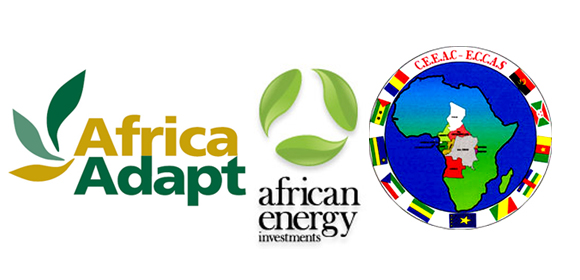- Washington “follows with interest” Morocco’s openness onto Africa (John Kerry)Posted 11 years ago
- The trial of South African Paralympic champion Oscar Pistorius opened in Pretoria on Monday.Posted 11 years ago
- USA welcomes efforts of King Mohammed VI in MaliPosted 11 years ago
- Egypt’s population reaches 94 millionPosted 11 years ago
- Mugabe celebrates his 90thPosted 11 years ago
- Moroccan Monarch to Build a Perinatal Clinic in BamakoPosted 11 years ago
- King Mohammed VI handed a donation of bovine semen for the benefit of Malian breeders.Posted 11 years ago
- Moroccan King’s strategic tour to Africa: Strengthening the will of pan African Solidarity and stimulating the south-south cooperation mechanisms over the continentPosted 12 years ago
- Senior al-Qaida leader killed in AlgeriaPosted 12 years ago
- Libya: The trial of former Prime Minister al-Baghdadi AliPosted 12 years ago
Central Africa: an electric potential of 150 000 Megawatt
 The Strategic Plan of the Economic Community of Central African States (ECCAS) for the period 2011-2015 includes 14 cross-border electrification projects, from Angola to Chad via the Democratic Republic of Congo (DRC), Congo – Brazzaville, Cameroon, Gabon, Equatorial Guinea, under the coordination of the Central Africa Power Pool (CAPP), the permanent secretary, Bruno Kapandji Kalala, has announced.
The Strategic Plan of the Economic Community of Central African States (ECCAS) for the period 2011-2015 includes 14 cross-border electrification projects, from Angola to Chad via the Democratic Republic of Congo (DRC), Congo – Brazzaville, Cameroon, Gabon, Equatorial Guinea, under the coordination of the Central Africa Power Pool (CAPP), the permanent secretary, Bruno Kapandji Kalala, has announced.
Composed of 10 countries (Angola, Burundi, Cameroon, Congo, Gabon, Equatorial Guinea, Central African Republic, DRC, Sao Tome & Principe and Chad), ECCAS has a potential power generation of 150,000 MW of which only 2.5% is operated . Central Africa is able to supply electricity to Southern Africa, North Africa and even Europe already interconnected to North Africa. The DRC is already selling 150 MW to Zimbabwe. The leaders of the region have adopted, in 2009, an electricity market code contributing to secure the public and private investments. In regards to the 14 interconnection projects announced, 9 are in the phase of studies, including 5 funded by the African Development Bank (ADB) and 4 by the European Union (EU). Alongside this operation, the leading oil exporter in sub-Saharan Africa, Nigeria, paradoxically suffers from a significant shortages of electricity supply, including major cities, starting with Abuja, the capital. Nigeria is therefore seeking a connection from the Inga hydroelectric complex in the south-west of the DRC to Calabar in south-eastern of Nigeria, Mr Kapandji Kalala has announced during the annual meeting on cooperation between the UN Economic Commission for Africa (ECA), the ECCAS and the Economic and Monetary Community of Central Africa (CEMAC).
